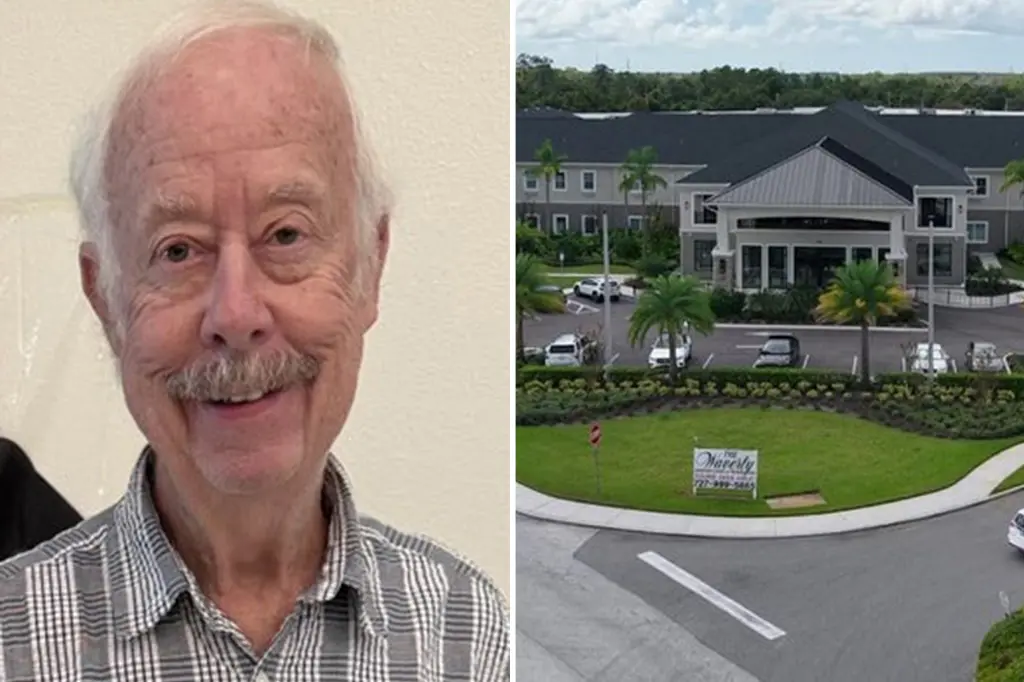The Tragic Loss of William Eugene Ray: A Family’s Quest for Answers
In a heart-wrenching incident that has left a family grieving and searching for answers, 83-year-old William Eugene Ray, a dedicated US Navy veteran who served his country for 36 years, was found dead inside a walk-in freezer at The Waverly Assisted Living and Memory Care facility in Trinity, Florida. Ray, affectionately called Gene by his loved ones, had been placed in the facility’s care in May after his family made the difficult decision that his progressing dementia required professional attention beyond what they could provide at home. His daughter, Kristen Spencer, had taken the precaution of installing a Ring camera in his room to monitor his well-being remotely, a decision that would ultimately reveal the tragic circumstances surrounding his disappearance. “You put your loved one in there with trust,” Spencer told local media, expressing the faith families place in care facilities when entrusting them with their vulnerable family members.
The devastating discovery began unfolding on September 26, when Spencer checked the Ring camera footage and noticed something alarming – the light in her father’s room was on, but he was nowhere to be seen. Concerned, she reviewed earlier footage and realized that Ray had left his room around 12:30 a.m. the previous night and hadn’t returned since. This prompted immediate action from the family, with Spencer calling her mother, who then contacted the facility to raise the alarm. Within hours of this notification, staff at The Waverly made the horrifying discovery that Ray’s body was inside a walk-in freezer on the premises. The shock of this news hit Spencer with brutal force: “But then the next words out of her mouth was, ‘He’s in the freezer.’ And I said, ‘What do you mean he’s in the freezer?'” While the Pasco Sheriff’s Office has reported that their preliminary investigation shows no signs of foul play, the circumstances surrounding Ray’s access to a restricted area like a freezer have raised serious questions about safety protocols at the facility.
The tragedy has illuminated broader concerns about the safety measures in place for memory care residents. Spencer noted that while there had been “no issues” when her father first moved into the facility, “little things” gradually began to emerge that “start[ed] to send up concerns.” Now, in the aftermath of this devastating loss, the family is advocating for accountability and systemic changes to protect other vulnerable residents. “When you have vulnerable people in a place, you have to secure these areas,” Spencer emphasized, highlighting a fundamental expectation of any memory care facility. Perhaps most troubling to the family is the question of when Ray would have been found had they not initiated the search themselves: “If we had not called the facility, when would they have found them?” This question underscores potential gaps in monitoring procedures for residents with dementia who may wander, a common and dangerous symptom of the condition.
Ray’s life before entering assisted living tells the story of a man dedicated to service and hard work. He joined the Navy at just 17 years old, beginning a military career that would span nearly four decades. Upon returning to civilian life, he continued to contribute to his community through his work at a private land surveying firm and later at the Department of Transportation in Bartow, Florida. As a father of two, Ray’s legacy extends beyond his professional accomplishments to the family now advocating for justice and change in his name. His transition from independent living to requiring memory care reflects the journey many families face as they navigate the challenges of aging and cognitive decline in their loved ones. The decision to place him in assisted living was made out of love and a desire for him to receive specialized care, making the circumstances of his death all the more tragic.
In response to the incident, The Waverly has defended its staff while expressing condolences for the loss. In their statement, they emphasized that they had “never experienced an incident of this nature in the many years of operating in the Assisted Living space” and described their community as “deeply saddened by this heartbreaking loss.” The facility further stated that the “grief felt by our entire staff is indescribable” and expressed pride in their “staff’s profound and immediate response to the situation.” They also requested that the public refrain from leaving “unmoderated, anonymous, non-factual reviews” online, suggesting concern about reputational damage amidst the tragedy. Despite the incident, The Waverly maintained confidence in “the high level of service, comfort, and care” they provide as “one of the premier assisted living and memory care communities in Florida,” a claim that now faces scrutiny in light of Ray’s death.
For families with loved ones in memory care facilities across the country, Ray’s story serves as a sobering reminder of the vulnerabilities present even in professional care settings. Spencer and her family are committed to ensuring that “no other family will have to endure” what they have experienced, transforming their personal grief into advocacy for stronger safety measures in facilities that serve those with dementia. The case raises important questions about how memory care units secure potentially dangerous areas, monitor resident movements, conduct regular checks, and respond when a resident is missing. It also highlights the crucial role that family vigilance played in this situation – without Spencer’s remote monitoring and quick action, the discovery might have been delayed even further. As investigations continue and the family processes their loss, William Eugene Ray’s legacy lives on not only in the memories of his service to his country and devotion to his family, but potentially in future improvements to safety protocols that might save other vulnerable seniors from similar fates.











